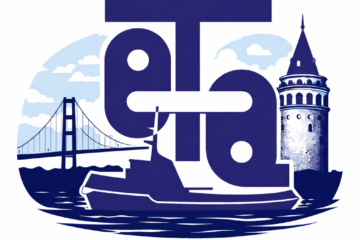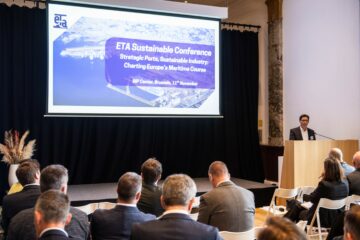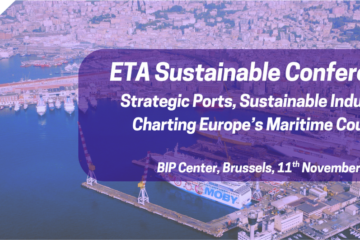ETA 3rd Autumn Conference took place virtually due to the COVID-19 pandemic, but in spite of these difficult circumstances the event fulfilled the expectations of organizers and attendants. 81 participants representing the towage industry and its suppliers followed a quite rich debate on the pandemic´s impact on the sector and the future ahead. The discussions, brightly moderated by Steve Dougal, Century Marine Services, maintained a quite positive tone and proved that the towage and maritime sector have been able to adapt to this new reality, resisting as an essential industry that kept the EU economies running.
The first half of the event focused on the way towage and maritime companies adapted to the pandemic constraints (logistics, health and labour) and the lessons learnt during this period.
Kasper Nilaus, Svitzer Global CEO described the efforts taken by the company to keep its employees safe and healthy, both mentally and physically, while providing uninterrupted service to its customers. Giving the global scale of the company, Svitzer had to adapt to the different restrictions imposed by national governments and strived to make periodic crew changes.
Mijndert Wiesenekker, Damen Shipyards Commercial Director, summed up the COVID-19 impact on the company´s operations, from travel restrictions to the difficult repatriation of workers, problems with crewing, or limitations in the inspection of projects. Damen had to give creative responses to these issues to keep its shipyards working, forcing it to rely on digital technologies and develop new solutions like the Triton software.
Vicente Boluda Ceballos, Boluda Corporación Marítima Executive Vicepresident gave a snapshot of the company´s measures taken to stay operative while protecting the safety and health of its employees. The corporation´s direction adapted to the changing circumstances by developing new crisis decision making groups that helped it to act with the flexibility and adaptability that these times demand.
Mr Willem-Jan Hamers, Redwise Managing Director gave his experience leading a crewing services company. enumerating the different issues it had to address, as crew repatriation, which forced the firm to work together with shipowners and diplomats, or regular testing for the crews of every ship that departed (going through at least 3 different COVID-19 tests before setting sail).
Jorgen Bjerre, Deputy head of Unit DG Move European Commission outlined the new EU policy landscape triggered by the European Green Deal, which will require that transport emissions are cut by 90 % by 2050. Moreover Mr Bjerre described the many funding opportunities that the sector will have in order to adopt greener and smarter technologies and to adapt to the new EU requirements. This transition could be supported by Horizon Europe funds, the Connecting Europe Facility, the new Transport Recovery and Resilience Facility or even the Cohesion and Regional Development funds.
Lamia Kerdjoudj, Secretary General of Feport analysed the way European ports adapted to the crisis and its impact (drop in volumes of up to 40%, an increase in blank sailings, etc.). Concerning the last policy initiatives affecting the sector, Ms Kerdjoudj called for funding mechanisms to support first movers and make innovation in green technologies more attractive. At the same time she also advocated more collaboration within the industry in order to develop a common vision for the next decades and highlighted the need for a review of the EU competition rules to ensure a level playing field within the internal market and outside the EU.
Ali Gurun, Sanmar Vicepresident gave a very detailed view of the different technologies the shipyard is implementing in its new tugboats to reduce their emissions. These include the construction of hybrid models, using both electricity and diesel like its Boğaçay XXXVI, the more extensive deployment of LNG fuelled tugboats or even the development of new software which can aid companies to reach a higher energy efficiency in its operations.
Finally, Danae Bezantakou, Navigator Shipping Consultants CEO concluded the Conference by highlighting the key role that the Greek maritime cluster plays as the EU leading shipping power and thus, a guarantor of the essential European strategic autonomy and resilience.
The ETA Secretariat thanks all participants and speakers for a very interesting debate on the EU towage sector´s response to the pandemic, and the perspectives for a more resilient smart and green future. We are looking forward to meeting you soon in person.



0 Comments